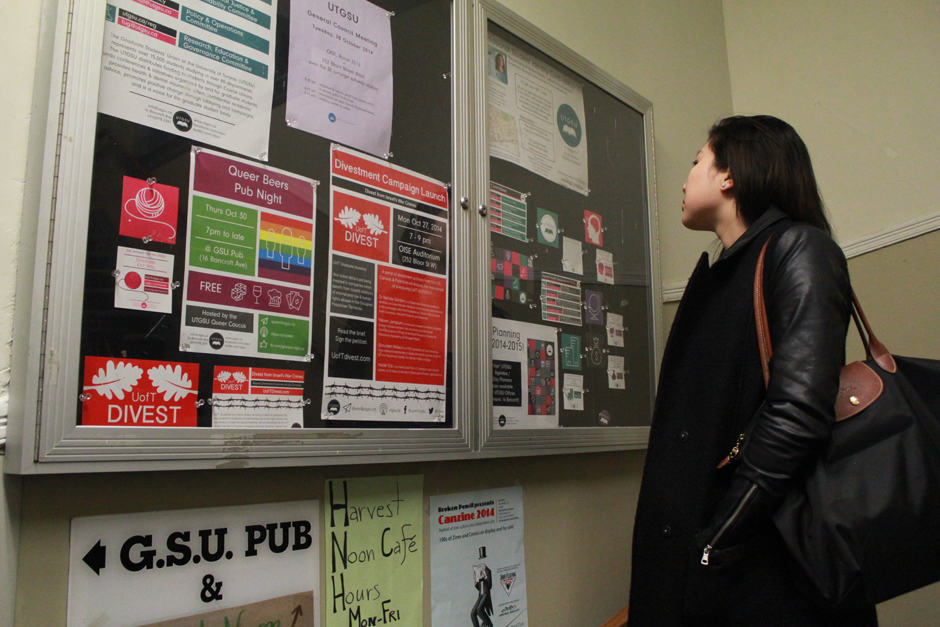After a prolonged battle, the University of Toronto Graduate Students’ Union (GSU) Litigation Committee has reached a settlement in their case against the Canadian Federation of Students (CFS).
The settlement will allow the GSU to hold a referendum on the question of their CFS membership status. The vote will take place between November 24 and 28, 2014, with the campaign period beginning on November 10.
Since September 2013, members of the GSU have been fighting for the chance to decertify from the CFS. The initial goal was to hold a vote on the question of defederation within the academic year.
The GSU has no formal position on its status as a member of the CFS, nationally or provincially.
Members of the GSU submitted a petition to the CFS last September but received notice from the CFS that their petition had been rejected just weeks before the referendum to vote was scheduled to take place.
In order to be valid, the petition had to have had the support of no less than 20 per cent of its membership — in the GSU’s case, more than 3,000 signatures. According to CFS bylaws, the GSU cannot hold a referendum to vote without the petition.
In January, the GSU formed a Litigation Committee to review the petition process and shed light on the alleged problems they encountered.
The Litigation Committee took the CFS to court over the matter, reaching a settlement two weeks ago.
The petition had failed as numerous signatures were deemed invalid. According to CFS bylaws, the signatures on the petition must be attached to current students, the names must legible, and the signatures must be “unique.”
The CFS claimed that multiple signatures did not meet requirements.
In order to properly examine the petition, the CFS needed an official list of students that were members of the GSU. However, under Ontario’s Freedom of Information and Protection of Privacy Act, the vice-provost did not release this list.
Deloitte, a professional services firm, was hired as a compromise by both parties to investigate the petition thoroughly.
The investigation concluded that multiple signatures were from non-members of the GSU. The petition was then deemed unacceptable as it fell just short of the required 20 per cent.
In July 2014, the GSU posted an open letter that announced that they had sought legal counsel on the matter.
After further investigation, it emerged that many of the names deemed invalid by the CFS were allegedly acceptable by their standards. This meant that the petition was once again above the necessary 20 per cent.
Due to this, the Litigation Committee decided to take the CFS to court.
A settlement was reached two weeks ago, but the Litigation Committee declined to comment on the matter, citing confidentiality related to the settlement.
A report on the settlement will be presented at the GSU’s next general meeting.
As of last September, the GSU was one of some 15 student unions looking to decertify from the CFS.
The Litigation Committee has been dealing with both the national and provincial offices of the CFS.
As of press time, Alastair Woods, chairperson of the CFS-Ontario, did not respond to requests for comment.
Corrections: An earlier version of this article said that the vice-provost did not release the list of members under U of T policy. In fact, this was in accordance with provincial regulations. An earlier version of this article said that Deloitte was hired independently by the CFS and that, in July, the GSU was seeking legal counsel. In fact, Deloitte was hired as a compromise and the GSU had sought legal counsel by July. An earlier version of this article incorrectly said that the Committee was formed in response to the petition’s failure. This article has also been updated to clarify that the Committee declined to comment on the matter due to confidentiality related to the settlement.


